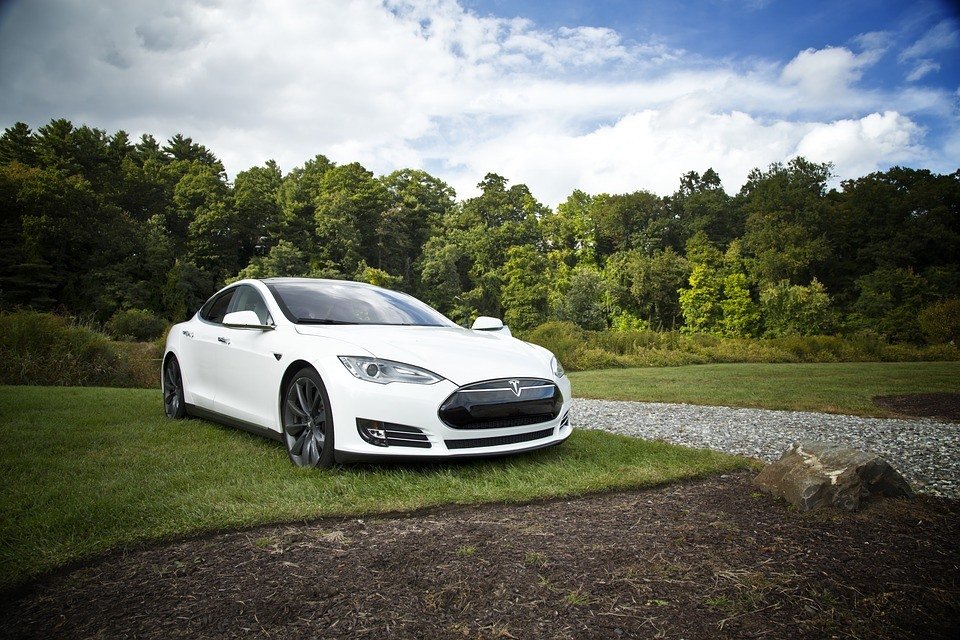Business
The road to sustainable green living with e-vehicles
The global production and sale of electronic cars are crucial to a sustainable and green future.

In the face of global warming, researchers are devising numerous measures to minimize environmental wastes and create ways to sustainable green living. One of them is the use of electric vehicles. The idea of non-oil powered cars is slowly gaining ground among modern drivers. After all, these cars are cleaner and better when it comes to emissions.
Electric car sales during the months of May through August are usually among the highest of the year. BMW met its target sales of 100,000 electric cars for 2017 well before the year-end, after selling only 62,255 in 2016. This positive trend has prompted the company to expect its sales growth rate in the coming year to reach double digits. Toyota, on the other hand, is also targeting more electric car production and sales; the Japanese automaker aims to sell 1 million units before 2020.
Aside from being environment-friendly, people love electric cars because of the satisfaction they give in terms of value and performance.
One prime example of that is Tesla’s rise to prominence in auto making. The premium electric carmaker prides itself on its top-of-the-line vehicles. They go beyond just ridding their cars of fuel dependency. Tesla ups the game with their sleek exteriors, unique designs (like those falcon wing doors) and highly advanced driving features. That includes their auto-driving software, which they are still perfecting.
According to Zach Shahan, director of CleanTechnica.com, “The revolution in e-vehicles will be driven by the fact that they are fun to drive, with lots of power and torque, and you don’t ever have to go to the gas station.”
Better batteries
Indeed, the price of oil is not a problem for e-vehicle owners. They only need to charge their hybrid batteries to drive their cars. However, this also poses a problem, since the fastest charging time for a fully electric vehicle with all of the right equipment is about 20 minutes. This only fills only to about half capacity. Replacement of a hybrid battery has also been pegged at about $5,000 or more.

Tesla is prominent in the global production and sale of electronic cars, which help achieve sustainable green living. (Source)
Fortunately, there are fast-charging batteries under development. They would decrease charging time and at the same time, increase the lifespan of the batteries. Researchers at Nanyang Technology University in Singapore have developed lithium-ion batteries that charge to 70 percent in two minutes. Moreover, they have a projected lifespan of 20 years.
Instead of using graphite as the usual anode material in lithium-ion batteries, the researchers used titanium dioxide nanotubes. These nanotubes act as a gel that transfers electrons more efficiently than graphite anodes. This speeds up the charging process and multiplying the battery’s lifespan by six to seven times.
Artificial photosynthesis as fuel
Those who are looking for sustainable green living through liquid fuels can also consider artificial photosynthesis, a process that uses sunlight to split water and carbon dioxide into hydrogen, oxygen, and carbon. A catalyst recombines these components into liquid fuels, with methanol one of the most likely to be synthesized.
Researchers at the California Institute of Technology claim to have built a lab-scale device that converts 10 percent of the sunlight that reaches into liquid fuel. The process is even more efficient than natural photosynthesis. In the latter, plants generally convert just one to two percent of solar energy into sugars and other carbohydrates.
Early research into artificial photosynthesis is not without glitches. Platinum is currently the preferred catalyst. Since the white metal is expensive, it could affect the commercial viability of the process. Furthermore, the splitting of water and carbon dioxide molecules is still done separately. Researchers currently focus on finding cheaper catalysts, improving efficiency beyond 10 percent, and streamlining the process.
All these new developments point toward the sustainability of electric vehicles. If cars go green completely, it would go a long way in fighting the effects of pollution and climate change.

-

 Crypto6 days ago
Crypto6 days agoXRP vs. Litecoin: The Race for the Next Crypto ETF Heats Up
-

 Biotech3 days ago
Biotech3 days agoSpain Invests €126.9M in Groundbreaking EU Health Innovation Project Med4Cure
-

 Crypto2 weeks ago
Crypto2 weeks agoRipple Launches EVM Sidechain to Boost XRP in DeFi
-

 Impact Investing6 days ago
Impact Investing6 days agoShein Fined €40 Million in France for Misleading Discounts and False Environmental Claims























